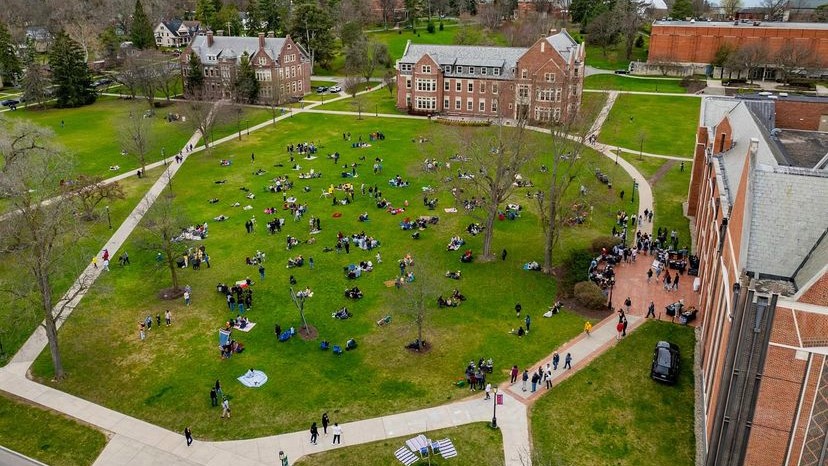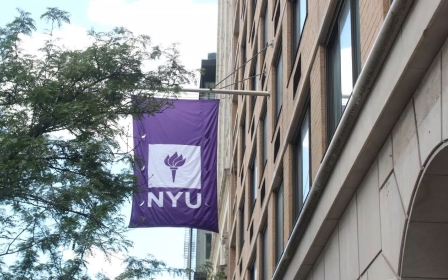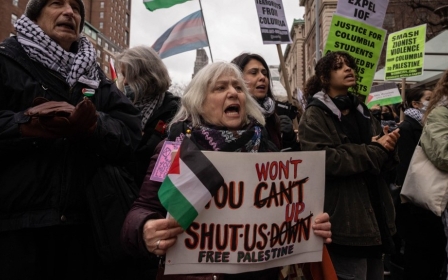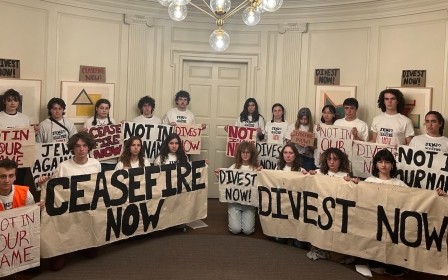Israel-Palestine war: US professor placed on leave for describing 7 October attacks as ‘exhilarating’
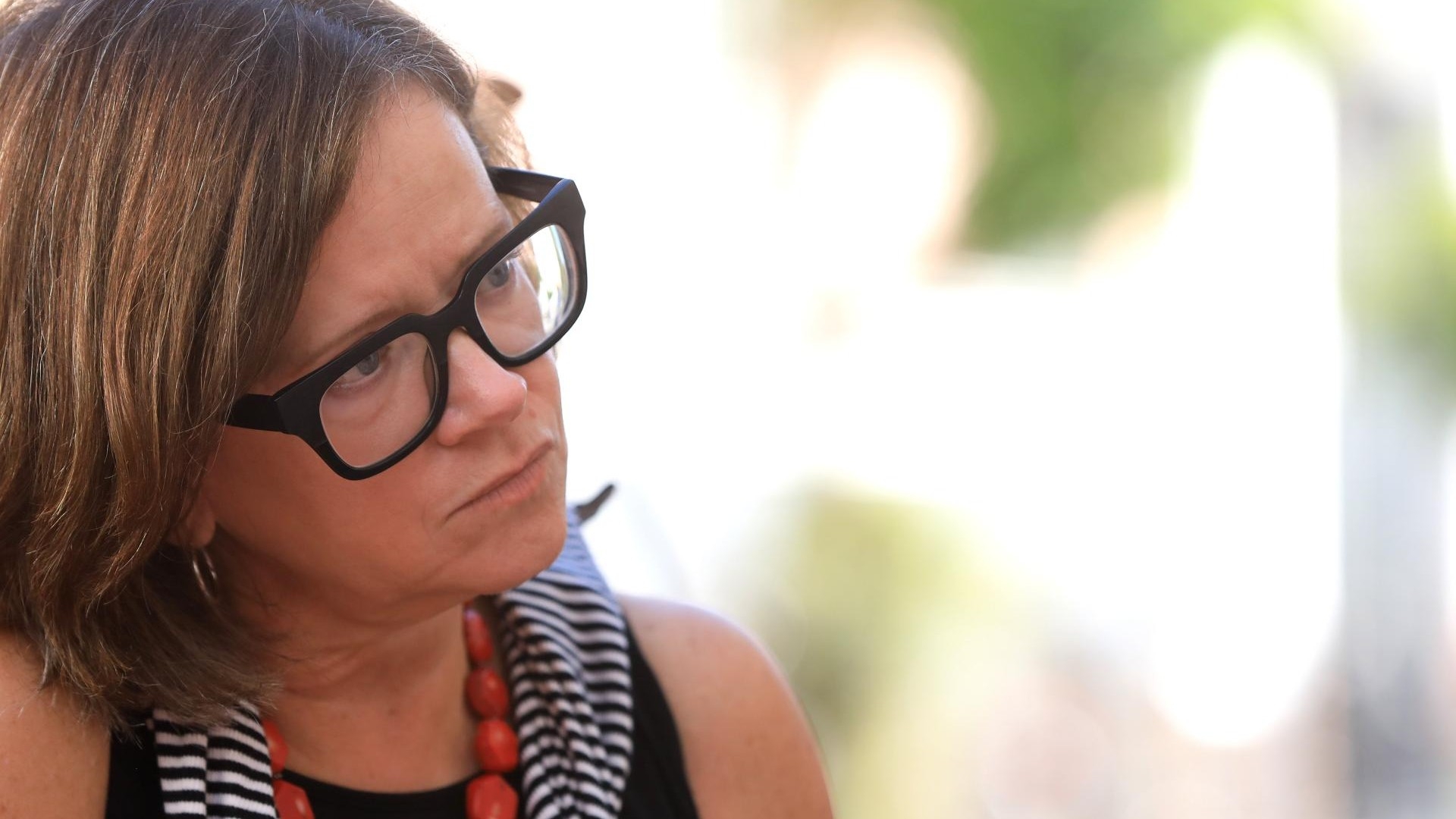
A leading American political theorist who wrote an essay describing how mainstream academia and scholarship have tried to police how people feel about the Hamas-led break out of Gaza on 7 October has been placed on leave from her teaching position at Hobart and William Smith Colleges.
The incident involving Jodi Dean, a celebrated and distinguished political theorist, has had a chilling effect on faculty and students at the New York university, scholars and academics have said.
According to the letter sent out by president Mark Gearan on Sunday, Dean's removal from her duties, while an investigation takes place, was predicated on the possibility there "may be students on our campus who may feel threatened in or outside of the classroom" on account of her essay.
Dean becomes one of several professors across the US to be targeted for either speaking or writing contrary to mainstream American narratives of the Hamas-led attacks on southern Israel on 7 October. But academics and scholars say that seeing her being singled out and targeted, as a fully tenured member of faculty, sets an entirely new precedent.
New MEE newsletter: Jerusalem Dispatch
Sign up to get the latest insights and analysis on Israel-Palestine, alongside Turkey Unpacked and other MEE newsletters
"It has had chilling effect on faculty - tenured and untenured - on the whole college community, including students - that somebody would be singled out and disciplined for this. It violates our institutional procedures," Paul Passavant, a professor of politics at HWS told MEE.
"It is a total violation of academic freedom. And it violates the integrity of the institution as an academic institution.
"I have been here for 20 years and I haven't seen anything like this," Passavant, who is also president of the university chapter of the American Association of University Professors, added.
In her essay, published by Verso Books, titled: Palestine Speak for Everyone on 9 April, Dean described the images of the paragliders soaring over the fence separating southern Israel from the Gaza Strip as "exhilarating".
"Who could not feel energized seeing oppressed people bulldozing the fences enclosing them, taking to the skies in escape, and flying freely through the air?" Dean wrote.
"The shattering of the collective sense of the possible made it seem as if anyone could be free, as if imperialism, occupation, and oppression can and will be overthrown.
"Such actions puncture expectations and create a new sense of possibility, liberating people from hopelessness and despair," Dean added.
Though Dean's opening salvo has been the topic of ridicule and complaint among pro-Israel supporters, her essay also examined how students, faculty and writers were being told how to think, feel, and process the events of 7 October.
Dean told MEE that her essay tried "to capture the responses that many have felt, and that are present out there in the world".
"Particularly when you read writings from people who are not in the United States [like] people who are in the Global South. You even saw many statements like this, at the beginning in the US, and then they were quickly shut down."
The noted professor described "the politics of feeling" as important to this moment. She added that it was quite telling that she was now being punished for daring to talk about feelings people had around the 7 October attacks.
Dean says she can't help but notice the irony of being disciplined for the same thing she describes in the piece. "I'm being disciplined for describing a feeling."
"And I'm trying in that piece to capture a sense of the struggle for freedom and the importance of the freedom struggle for recognising Palestinians as fully human beings.
"And it seems like that the inability to recognise the courage and the purposefulness of the resistance is one of the things that prevents the development of as much solidarity as we really need in here in the belly of the beast in the United States to stop us participating in this genocide and provide real support," Dean added.
Four days after the article was published, Dean was informed by colleagues that an online campaign against her was beginning to gather steam.
A day later, she was called into Gearan's office, where she was read out a statement informing her that she had been removed from continuing with her duties as a teacher.
She was informed that an investigation would take place.
"We all share the responsibility to make certain that we are not making this an even more challenging time," Gearan said in a letter since shared with MEE.
In a statement sent to MEE, Catherine Williams, vice president for marketing and communications at HWS, said that Dean was on leave pending an investigation.
"Hobart and William Smith Colleges deeply believe in and supports free speech and academic freedom. It is a tenet of our work. This means that Professor Dean has the right to express her views, just as others have the right to find those views reprehensible and to condemn them.
"However, Hobart and William Smith also has an obligation – as do all colleges and universities in the United States – under federal anti-discrimination laws, including Title VI, to take action when we know or should know of a hostile environment based on national origin. This is the law, and we fully abide by it," Williams said.
In response to the university’s statement, Dean told MEE the college had yet to illustrate or explain why they have reason to believe students may feel unsafe as a result of her article.
Around 1,200 people, including hundreds of Israeli soldiers, were killed on 7 October and over 200 were taken hostage back to Gaza, leading to the continuing Israeli assault on the enclave that has killed more than 33,000 Palestinians and left a million people on the verge of starvation and famine.
In January, the International Court of Justice described Israel's war conduct as plausibly amounting to genocide against the Palestinian people.
Dean said part of the effort to dictate how people react or feel about Israeli crimes is rooted in long-standing institutional support for Israel.
"It's very clear that Israel is engaged in a genocidal war of extermination. And that the effort to pretend that that's not happening is still in place, particularly in the United States, in the UK, and in Germany.
"Higher education institutions are part of the imperial system that maintains the US support for Israel. This part is crashing, I think, more than it has ever, since 1967, at least," Dean added.
Middle East Eye delivers independent and unrivalled coverage and analysis of the Middle East, North Africa and beyond. To learn more about republishing this content and the associated fees, please fill out this form. More about MEE can be found here.


